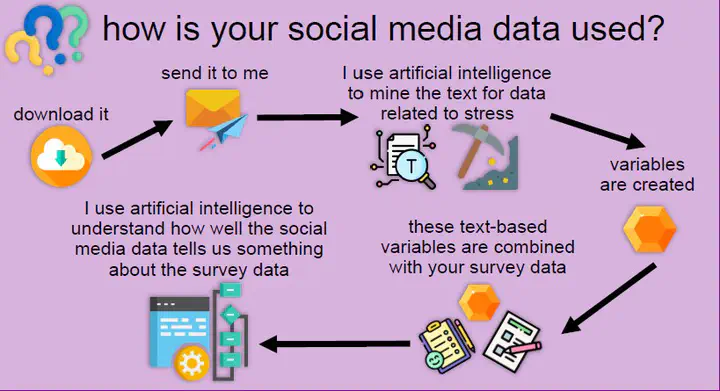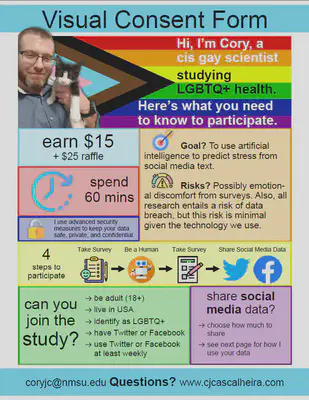CMIPS
 Photo from the CMIPS Visual Consent form.
Photo from the CMIPS Visual Consent form.Computational Methods Investigating Psychosocial Stressors (CMIPS)
This project has received IRB approval.
The overarching goal of CMIPS is to apply artificial intelligence to understand how LGBTQ+ people talk about stressful experiences on Facebook and/or Twitter. There are three specific aims to this project.
Aim 1. Use machine learning, deep learning, and natural language processing to model psychosocial stressors as a dichotomous outcome (e.g., high vs. low stress) among LGBTQ+ people using their Facebook and/or Twitter data.
Aim 2. Use machine learning, deep learning, and natural language processing to model psychosocial stressors as a continuous outcome among LGBTQ+ people using their Facebook and/or Twitter data.
Aim 3. Understand the acceptability of passive sensing, artificial intelligence, and computationally enhanced digital health among LGBTQ+ people.
Results will help support the development of technology-delivered mental health tools (e.g., digital mental health apps) specifically designed for LGBTQ+ people.
Check out the visual consent form to learn more.


Project Funding
- Counseling Psychology Dissertation Award, New Mexico State University
- Graduate Student Research Award, American Psychological Association Division 35 Section on Sexual & Gender Diversity
- Wayne F. Placek Grant, American Psychological Foundation (PI Cascalheira)
- NIH Minority Biomedical Research Support (MBRS) Research Training Initiative for Student Enhancement (RISE) Fellowship (R25GM061222, PI Houston, Trainee Cascalheira)